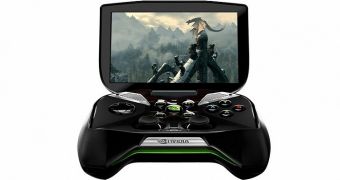NVIDIA's SHIELD handheld game console never managed to leave anyone gobsmacked in awe, but the company never stopped pushing it forward even when interest, substandard as it was, waned. Now, the company is preparing a second console.
At least that is what certain parties with a liking for the Internet have said. The Santa Clara, California-based company has not made any official statement to this effect.
However, considering that it has been a full year since the NVIDIA Shield handheld console came out (it was released on July 31, 2013), the company has to either give up consoles as a bad job or try to launch something new and better.
Fortunately, NVIDIA is one of those companies unlikely to perish any time soon, being half of the duopoly on the graphics front and heavily involved with pretty much every game maker out there.
Besides, it must have gathered enough data and feedback to know what exactly didn't work for the Shield and shouldn't be repeated for the new console, whatever its name will be.
Granted, there is a possibility that NVIDIA will just cram more performance in the thing and hope for the best, but since that didn't exactly work for tablets, it might not happen.
Sadly, the alternative that the green team is headed towards isn't much better. Indeed, it might even be worse from a certain point of view.
You see, the NVIDIA Tegra K1 processor will power the handhled device, which is all well and good. Also, the Android OS will be retained, though in a more refined, up to date form.
This will be more than sufficient to run everything in the Google Play store. Alas, NVIDIA is aiming much higher, higher than what the hardware can manage: console-graphics games and beyond.
The solution? Allowing the SHIELD successor to sync directly with a Windows computer, access the CPU and GPU resources of a desktop or notebook. Sounds convenient in theory, until you realize that you won't be able to use the console to its full potential unless you own a powerful gaming PC at home, which rather defeats the purpose of a handheld, mobile console.
Then again, it's not like hardcore hardware could ever fit inside the small frame of the gamepad-shaped invention, so there isn't, at present, another way to enable PC game quality on this type of electronic. In the end, the sales of the SHIELD will hinge on whether or not gamers would prefer the game controller setup to PC titles' keyboard+mouse controls.

 14 DAY TRIAL //
14 DAY TRIAL //